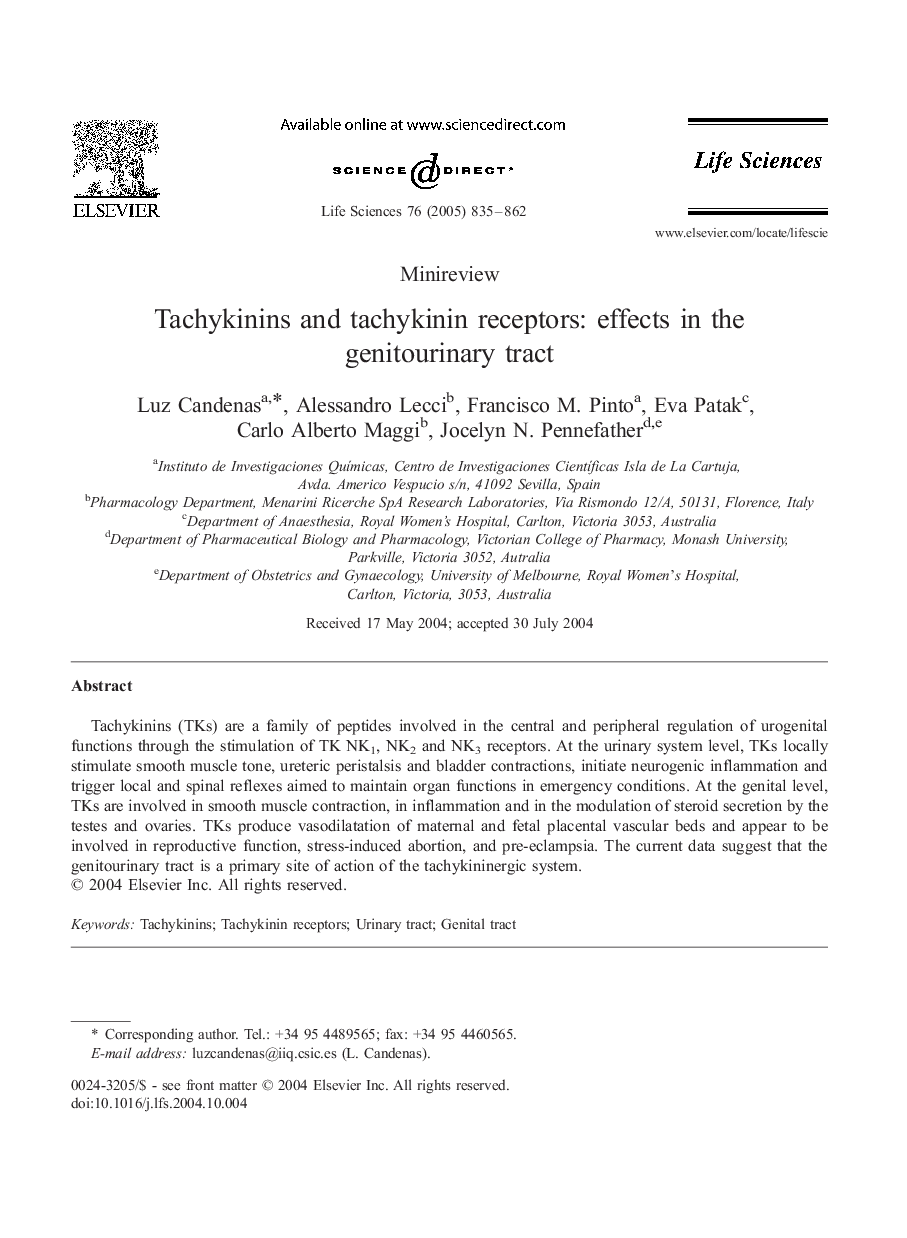| Article ID | Journal | Published Year | Pages | File Type |
|---|---|---|---|---|
| 9013016 | Life Sciences | 2005 | 28 Pages |
Abstract
Tachykinins (TKs) are a family of peptides involved in the central and peripheral regulation of urogenital functions through the stimulation of TK NK1, NK2 and NK3 receptors. At the urinary system level, TKs locally stimulate smooth muscle tone, ureteric peristalsis and bladder contractions, initiate neurogenic inflammation and trigger local and spinal reflexes aimed to maintain organ functions in emergency conditions. At the genital level, TKs are involved in smooth muscle contraction, in inflammation and in the modulation of steroid secretion by the testes and ovaries. TKs produce vasodilatation of maternal and fetal placental vascular beds and appear to be involved in reproductive function, stress-induced abortion, and pre-eclampsia. The current data suggest that the genitourinary tract is a primary site of action of the tachykininergic system.
Related Topics
Health Sciences
Medicine and Dentistry
Cardiology and Cardiovascular Medicine
Authors
Luz Candenas, Alessandro Lecci, Francisco M. Pinto, Eva Patak, Carlo Alberto Maggi, Jocelyn N. Pennefather,
